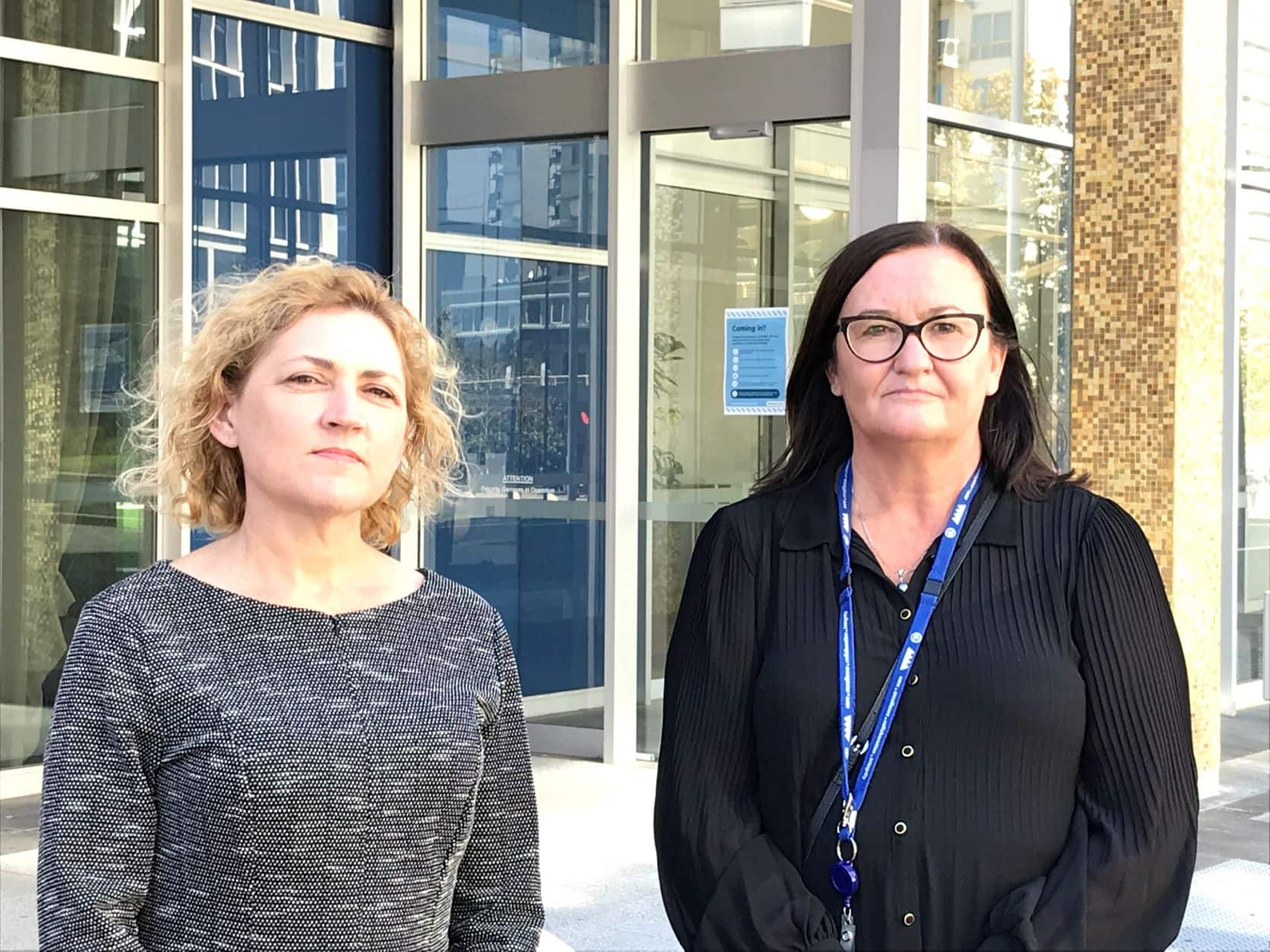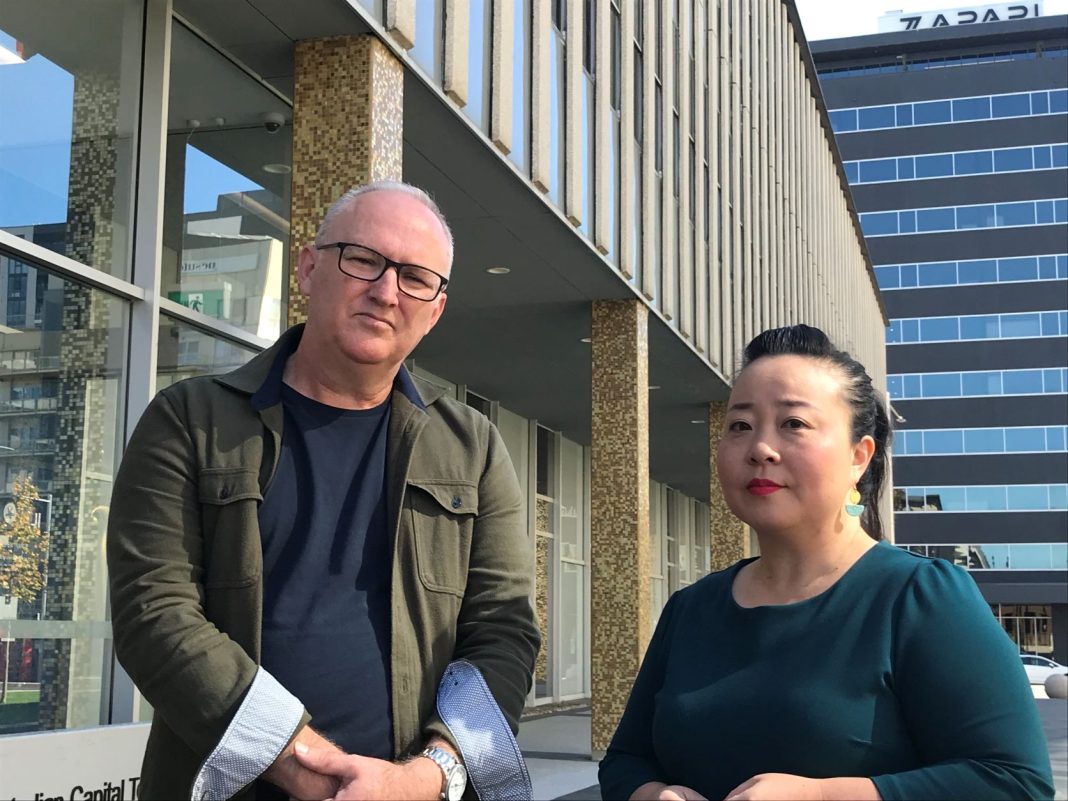The Australian Nursing and Midwifery Federation has repeated its calls for an independent inquiry into the Dhulwa Mental Health Unit after a nurse was maimed and WorkSafe ACT issued a prohibition and improvement notice in response to another incident last week.
“The fact that the independent safety regulator has had to step in and do the work of the government is a sign that the government’s work to date is not working,” said Matthew Daniel, ANMF ACT branch secretary.
The inquiry would uncover the contributing factors to the level of occupational violence at Dhulwa, and address issues beyond compliance with the Work Health Safety Act, Mr Daniel said.
The inquiry should also consider how Canberra Health Services (CHS) was implementing workers’ safety legislation, the Human Rights Act, and mental health legislation at Dhulwa. The Human Rights Act seems to have supremacy over work health safety legislation, Mr Daniel said.
“For too long, the nurses at Dhulwa have borne the brunt of the government’s inability to come to terms with how the facility should be operated,” he said.
The ANMF called last month for an inquiry into the medium security facility for people involved with the criminal justice system, alleging there had been 100 physical assaults over the six months to February. Those incidents, CHS claim, were largely due to specific circumstances in February that have been addressed.
The Canberra Liberals have backed the call for an inquiry, and intend to introduce a motion into the Assembly. Party leader Elizabeth Lee said the incidents at Dhulwa were “absolutely shocking”.
“We have nurses being assaulted and abused each and every day, and the Minister has gone missing, this Labor Greens government has stood by and allowed this to happen. It is absolutely unacceptable…
“This situation cannot continue. The Minister must take full responsibility and do what is right by our nurses and the broader community.”

Emma Davidson, ACT Minister for Health, would not commit to an inquiry, but said she would like to have a conversation with the ANMF about what an inquiry would look like, how it could best address nurses’ needs, protect their safety, and make sure Dhulwa operated to best clinical practice.
“We need to wait and see what the WorkSafe investigation comes up with, and then consider what else is required,” said Karen Grace, CHS executive director of nursing and midwifery.
Last week’s problems at Dhulwa
On Monday 11 April, WorkSafe ACT was shown CCTV footage of a ‘consumer’ (patient) physically assaulting a staff member, who had to be treated by ambulance.
“The control measures in place for the Occupational Violence hazard associated with the work conducted at the facility failed to protect the worker,” WorkSafe stated.
That Thursday, WorkSafe ACT issued an Improvement and Prohibition Notice. It stated that CHS must review measures to control occupational violence hazard and associated risks at the Dhulwa facility, and prohibited facility workers from any planned high-risk interaction or activity with consumers without identifying all potential occupational violence hazards and assessing risks.
It also directed CHS to “put in place a system of work that eliminates or … minimises the risk of occupational violence and reduces the risk of physical and psychosocial injury to workers”.
On Good Friday, a nurse lost part of his finger when a patient aggressively pushed the door back, catching his hand in the doorframe, Mr Daniel said. The nurse is in hospital, and will undergo surgery to see if the finger can be saved.
“I am always very sorry when these incidents occur,” Ms Grace said. “All of us at Canberra, Health Services work really hard every day to prevent any injuries to our staff; our staff health and well-being is of the utmost priority for us, and it is always difficult for us when these sorts of situations arise. … I’m very sorry for what happened.”
CHS also emailed staff and put up posters about the dangers of heavy doors, which Mr Daniel considers an inadequate response.
“Reminding staff of the risk of the doors is symptomatic of the whole problem,” Mr Daniel said. “Rather than saying we’re going to investigate whether the door is fit for purpose in these circumstances and look at the environment and look at the other broken door in the nurse’s station that contributed to this, they lay blame at nurses’ feet for this occurring.”
Ms Grace said CHS would consider changes to the design of the unit.
Since last week’s incident, CHS has introduced a safety huddle during the clinical handover at the end of each shift, to raise awareness of any risks or changes in patients’ behaviour, Ms Grace said. Also, a ‘dynamic risk assessment’ now takes place before any high-risk intervention involving a patient, so the staff understand the plan for the intervention. These would reinforce and strengthen existing procedures, she said.
Ms Grace said she welcomed WorkSafe’s involvement and insight. “There’s always going to be occasions when it is a real benefit to have an objective view of what’s happening in an environment,” she said. “We are really hopeful that it will lead to a much safer environment for our staff.”
Nurses were fearful every day they went to work, Mr Daniel claimed; some were unable to get out of bed because they were so fearful, while others were so stressed they were unable to talk to their children. The staff were concerned not only about their safety, but about that of other patients and visitors. Nurses worried that if they rotated into other units in the mental health area, other nurses would come to Dhulwa and be subject to occupational violence in turn.
CHS was “doing everything” to make improvements to the workplace, make sure nurses felt safe, listen to them, and involve them in any changes, Ms Davidson said.
“It is really distressing when people are injured at work. We want to make sure that their workplace is as safe as possible. It is a high-risk environment, and it’s very complex work that they’re doing. We want to make sure that what we’re doing constantly improves safety for all of the nurses out there.”
According to Mr Daniel, the management has “brazenly attacked” nurses; he claimed that a manager at Dhulwa told a staff member it was her fault WorkSafe were coming into facility, so it was up to her to come up with a solution.
Ms Grace said she not aware of that conversation.
“I would be very surprised if staff were criticised by anybody within CHS for doing such a thing, because we encourage our staff to escalate concerns around their safety. It’s absolutely their right, and the escalation happened through the appropriate processes through the health safety reps.”
Ms Davidson thanked any staff member who reported safety risks in the workplace for their courage; it was important to report such problems so those risks could be mitigated. CHS has worked over recent years to improve workplace safety culture, including at Dhulwa, she said.
The ANMF has also taken umbrage at Ms Davidson’s remark in the Legislative Assembly on 6 April. Asked whether she would conduct an urgent inquiry into violence and nurse safety at Dhulwa, Ms Davidson replied:
“I would very much like to have that conversation with the nurses’ union, and I hope that they will be happy to engage in conversation with me soon.
Mr Daniel “has got my number: call me, maybe.”
Mr Daniel pointed out that he had telephoned to Ms Davidson an hour before question time, and met her on 7 and 30 March, that last time with ANMF members.
“She’s playing pure politics, and protecting her own job, and not protecting nurses,” Mr Daniel said.
Ms Lee said Ms Davidson’s response was “reprehensible”.
“Her response to the nurses crying out for help is beyond the pale. … Our nurses and the nursing federation has been calling out for support for a long time.”
It showed, she said, “the extent of the culture of secrecy … created and fostered” by the government, who “continue to turn a wilful blindness to the seriousness of the situation”.
“The buck stops with the minister,” Ms Lee said.



